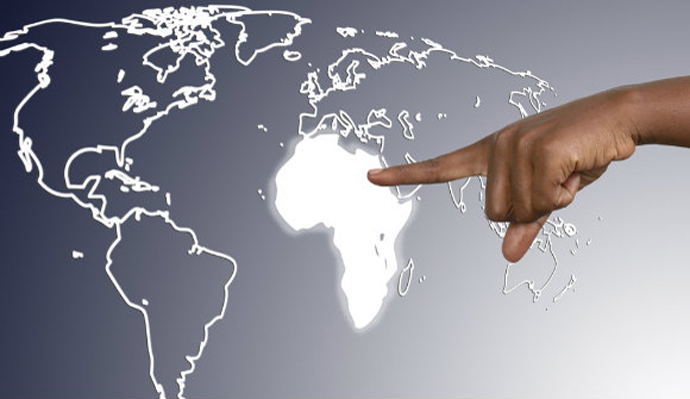Africa, the Dark Continent , with its rich resources, is still recording steady economic developments; reports indicate that several businesses, whether homegrown or multinational, are registering significant success in Africa. According to “Fastcompany”, business website ; the following businesses ideas are recorded as the top ones in Africa.
- IHUB
For connecting, amplifying, and accelerating Africa’s tech community. Erik Hersman’s iHub has become an important resource for Kenya’s tech community. The not-for-profit is a hybrid co-working space and university commons, which has grown to more than 10,000 members in just three years and has led to the launching of 150 companies—many of which are dedicated to finding technological solutions to Africa-specific problems.
- SANERGY
For bringing sustainable sanitation to Sub-Saharan Africa. More than 12,000 people living in Kenya’s slums are now receiving daily portable toilets containing toilet paper, sawdust, soap, and water thanks to Sanergy’s sustainability model—local residents purchase and manage the sanitation facilities, allowing them to become micro-entrepreneurs. Every day, the waste is collected and transported to a management centre where it’s treated according to the governmental standards and turned into fertiliser for use by East African farmers who can’t afford the otherwise high prices.
- ONE ACRE FUND
For fostering a new generation of farmers in Africa. The model is simple, but the impact is huge. One Acre Fund estimates it will represent Africa’s largest network of small farms in just a few years. The company provides farmers seed and fertiliser on credit, delivers the materials nearby for pickup, trains the farmers to use them, and helps them sell the harvests. Since launching in Kenya in 2006, One Acre Fund has expanded to surrounding Rwanda, Burundi, and Tanzania, reaching more than 180,000 farmers and aiming to hit 200,000 by the end of 2014.
- ROCKET INTERNET
For betting on U.S.-style commerce in Africa. This venture firm has launched more than 100 companies in Africa since its founding in 2007. Among its efforts: online food delivery with FoodPanda, real estate with Lamundi, hotel booking with Javogo, and Amazon-like shopping with Jumia—which is the most popular online shopping site on the continent. While the company runs much of the business from its Berlin headquarters and many are very similar, its work to bring new opportunities to Africa is vital to the continent’s growth.
- KONGA
For making the online shopping experience more secure. On Konga’s recently launched Marketplace, electronics to clothing to home appliances and beyond are available for secure online purchase—with more than 200,000 products on offer. The sellers include merchants from small Nigerian villages as well as large, international companies. Through focusing on buyer and seller protection, Konga is betting that as Nigerians continue to embrace broadband, they will also turn to e-commerce platforms like its Marketplace.
- STERIO.ME
For taking the infrastructure out of education. The young startup is rolling out a trial of its mobile e-learning service to 75 schools in Nigeria. The service uses SMS messages that give students access to material and lessons they listen to outside the classroom. The lessons are pre-recorded by the educators and sent as a free voice call when triggered by a specific SMS code. Educators can be immediately notified of which students finished the lessons and how they performed, saving them grading time and helping them prepare for the next class session.
- UPENERGY
For making it safer to cook in rural Africa. Millions of people in rural Uganda are still using inefficient and dangerous means of cooking, like three-stone fires and kerosene. UpEnergy has set out to both protect the environment and people by supporting distribution channels that benefit both large businesses (through carbon credits) and local retailers (through direct sales support and guidance) to make available safer, greener, and more efficient cookstoves, water purification technologies, and solar lights.
- DAPTIO
For championing the new wave in education: adaptive learning. With online education becoming more prevalent, the next step for many platforms is to shirk the typical lecture format in favor of an adaptive learning one. The goal has become finding a model that allows students to receive the right content at the right time, ultimately leading to higher understanding and better grades. With Africa seen as the next frontier for online learning’s expansion—growth of the mobile learning market in Africa over the next five years is 39% and expected to make e-learning a $530m market by 2017—Daptio’s presence is making it a reality.
- PREPCLASS
For preparing the next generation. Another education-oriented company on the list, PrepClass is an online portal for students preparing for standardised tests in Nigeria such as the JAMB, WAEC, GCE, or NECO. Students pay to take practice tests that prepare them for an online or paper tests and receive personalised feedback to improve for test day. To be as available as possible, PrepClass has partnered with more than 1,000 cybercafes across Nigeria to give students places with the necessary resources to use the platform.
- AWEZA
For connecting a scattered society. With more than 11 official languages in South Africa, Aweza is looking to bridge the gap between the segmented communities in the country and lessen the language barrier. Its app allows users to translate words and phrases for others all in a slick little package. By crowdsourcing translations to weed out inaccuracies, the company aims to leverage the growing mobile arena and encourage cultures to interact across their defined lines.
It is to be noted that some of the top companies in Africa are homegrown while others are multinational affiliates.


